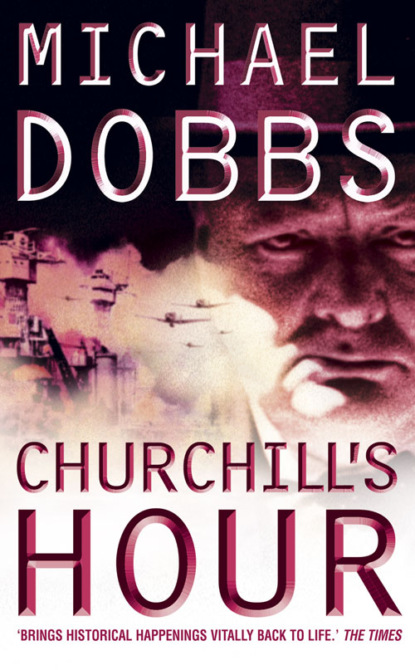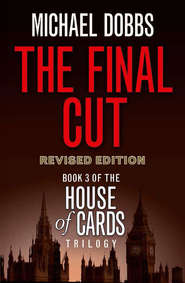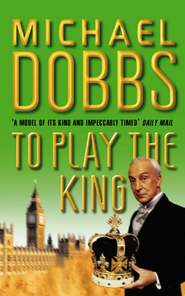По всем вопросам обращайтесь на: info@litportal.ru
(©) 2003-2024.
✖
Churchill’s Hour
Автор
Год написания книги
2019
Настройки чтения
Размер шрифта
Высота строк
Поля
‘What?’
‘Not going to work. Not there. Not anywhere,’ the workman said.
‘Why on earth not?’ Eden enquired, stuffing his thumbs deep into the pockets of his waistcoat.
‘Look at it, sir.’ The workman took a step forward. ‘It’s just too big. Turn his face to the wall and you’re still going to see his ermine slippers sticking out underneath. It’s enormous.’ Then, less loudly: ‘And we should know. Been moving it all morning.’
Eden cast a dark eye at the workman. He had thought him a monarchist, but now he suspected him of being simply a troublemaker. ‘Are you a Communist?’
‘What?’
‘Oh, never mind.’
The Foreign Secretary went back to examining his dilemma while the workman picked at the fragment of his cigarette with a broken orange fingernail. ‘Why the hell we have to be so nice to the bloody Yanks is beyond me,’ he said, turning to his colleague. ‘Late for the last war, they was. Run away from this war. Doing nothing but sitting on their backsides in Wall Street and soaking us dry.’
Suddenly Eden turned, furious. He’d heard. ‘We need them because right now we have no one else.’ He strode up to the man who he was now certain was a Bolshevik. ‘Where else do you think we’ll get the destroyers and other weapons we need to win this war?’
But the workman was not to be cowed. He was no revolutionary, but in his eyes it was Eden and his kind who had got them into this bloody war in the first place. If he was to be asked for his opinion, he was going to give it.
‘I hear we can’t afford it. Can’t afford the Americans as friends.’
Eden snorted in exasperation. That was the difficulty with men such as this who wandered into every corner and crevice of the Foreign Office. They heard too much, yet understood so little. ‘Of course we can’t afford it, but that’s no longer the point. The Americans have suggested they lend us the matériel instead, for the duration of the war. We borrow everything—the bombers, fighters, ships, guns, tanks, vehicles—then afterwards give them back. It’s called Lend-Lease.’
‘But not fighting…’
‘Not fighting, exactly. But assisting. Making it possible for us to win the war. A partnership.’ He clapped his hands. ‘But that’s it!’ he cried. ‘We could get another picture. Put it alongside. Something…well…American. Don’t we have something down in the basement?’
‘We’ve got a George Washington somewhere,’ the workman’s colleague began.
‘Splendid! Fetch it up. Put it alongside. It’ll balance the whole thing out.’
The workman was less enthused. ‘Stupid pillock,’ he said softly and very slowly to his colleague. ‘We’ll be shifting pictures all ruddy afternoon.’
Which is precisely what happened. They hauled and sweated their way up from the basement with the new portrait, a remnant from the State Visit of President Woodrow Wilson in 1918. The basement was three floors down. Which meant three floors back up. But no matter how much they shifted the paintings around the room, still it would not work. The portrait of the first American President was only a fraction the size of the umpteenth English king, and in whatever position they were tried, the result looked more like deliberate insult than diplomatic master stroke. Eden eventually threw up his hands in despair.
‘You’ll have to take them both down to the basement,’ he said.
‘What? Take down the King?’ the workman asked in bewilderment. ‘To the basement?’
‘We can’t afford to offend the Americans. There’s no other way,’ the Foreign Secretary announced before examining his pocket watch and rushing from the room. He left the workman squatting on his haunches, trying to manufacture another spindly cigarette.
‘Take down the King? To the basement?’ he kept saying over and over, as if through repetition he would come to understanding. ‘Makes you wonder, don’t it?’
‘What’s that?’ his colleague asked.
‘Who the bloody hell’s in charge here.’
The bathroom was small, narrow and hopelessly impractical. It had no windows and only the most rudimentary of ventilation systems, and was buried behind several feet of concrete. The planners who had built the fortified Annexe around the corner from Downing Street had wanted to ensure that, whatever else happened to him, Churchill wasn’t going—in his own words—‘to be blown out of his own bloody bath’. It was no idle threat; bath time was one of his set rituals. He would throw himself into the water, submerging completely, then surface once more, blowing like a whale. In between dives he would reflect, dictate, compose and shout orders, all the while cheating outrageously on the maximum level of bath water recommended by his own scrimping Government.
A flustered assistant came stumbling from the room, brow beaded in sweat, his glasses steamed, his notebook crumpled, the ink running down the page, nearly knocking into Randolph as he fled. Another male secretary was hovering, waiting his turn to go in, and Sawyers was fussing away near at hand, but both of them drew back as the Prime Minister’s son appeared, clad in the service dress of a captain, No. 8 Commando.
‘Papa?’ Randolph said, standing in the doorway. He took a step forward and was immediately enveloped in a fog of condensation, through which the outline of his father began to emerge, pink, perspiring, standing in front of the sink, shaving, completely naked.
‘Don’t shut that door,’ Winston snapped, wiping away at the mirror. ‘Not unless you want me to cut my own damned throat.’
‘Why don’t you bathe in St James’s Park,’ Randolph said. ‘It could scarcely be more public.’
‘Whaddya mean?’
‘You think Hitler wanders around the Reichs Chancellery waving his baubles about? It’s so bloody undignified.’
They couldn’t help arguing. Always had. For them it was like breath, and love, and light—as natural as the dew following the night.
‘I blame myself,’ Churchill began testily, ‘for sending you to the wrong type of school. Private showers and all that nonsense. It’s unhealthy. Encourages misconduct when you’re behind locked doors. And lack of candour when you’re not.’ He resumed scraping away the soap on his chin with a large open-bladed razor. ‘At Harrow, we used to be naked all the time, in the swimming pool, in the showers. That’s when I first met the men who now occupy some of the highest positions in the land—men of the cloth and of the law, even some in my own Cabinet. That’s why they all trust me. They know I have nothing to hide.’ He threw the blade into the sink and began groping for a towel. ‘Nakedness teaches you to look another man directly in the eye.’
‘Better still, not to trust him behind your back.’
Churchill turned. ‘Let’s not argue, Randolph. Not on your last day. Not before you leave for the warrior’s life in the desert.’
‘Cairo is scarcely the desert, Papa. Must you romanticize everything?’
‘There will be nothing romantic in what is about to take place in the Middle East. Where you are going could yet prove to be the fulcrum of the whole war.’
‘Is that why we’ve been sent by those weevils in the War Office to train amongst the ice floes of the Clyde? So we can serve in the Middle East?’
‘From what I’ve heard, the officers of your regiment appear to have undertaken most of their training in the bar rooms and fleshpots of Glasgow.’
‘What else is there to do on a winter’s night in such a God-awful place?’
They were at it again. Bristling. Born to fight. And Randolph carried with him the appalling burden for a fighting man of being the son of a Prime Minister. No one took him seriously. He wanted to be part of this war and was desperate to be sent overseas in search of action, for whatever else they might say about him, he was no coward. He’d joined his father’s old regiment, the 4th Hussars, in the hope it would get him sent to a battlefront, but they made it no further than Hull—held back, it was said, because he was his father’s son. So he had transferred to a commando unit—surely there would be action there. But only brawls on the street with Scotsmen. So the bathroom became a battleground, too.
Suddenly the moment was broken by a familiar voice.
‘If you’ll excuse me, Mr Randolph.’
Sawyers, damn the man. When he issued a request it carried all the authority of high command, even with his lisp. Reluctantly Randolph made way as the valet placed a set of carefully laundered silk underwear over the wooden towel rail, but his real purpose was to scold them both, reminding them that this might prove to be their last moment together on earth and they might never have the opportunity of forgiving or forgetting what was said between them. The servant managed to convey all this with no more than a raised eyebrow.
Churchill took his valet’s cue. ‘My darling boy,’ he said, and instantly a truce was declared. ‘You are about to embark upon the greatest adventure of your lifetime, and I know that whatever it is you are about to do will be done with honour and with formidable distinction.’
He finished climbing into his underwear and dressing gown, and was decent once again. ‘You know, Randolph, nine months ago when I became Prime Minister, I promised the people victory. Victory whatever the cost; that’s what I told them. They have borne the terrible cost yet seen precious little of the victory. So I beg you—be brave, fight boldly. The Middle East may not be the place where the final triumph is decided, but let it at least be where it is begun.’
‘I’ll do my best, Papa.’
‘Brighter days lie ahead, of that I am certain. So in everything you do, be a Churchill!’
And they embraced.
‘But how shall we win, Papa—finally?’











